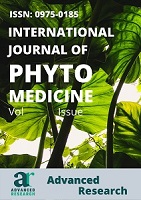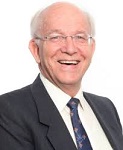Effect of an herbal extract of Sideritis scardica and B-vitamins on cognitive performance under stress: a pilot study
Keywords:
Sideritis scardica, B-vitamins, mental stress, cognitive performance, trail making test, colour word test, Stroop test, stress tolerance, stress resilienceAbstract
Chronic stress can impair cognitive functions including learning and memory. The current study investigated the reduction of (mental) stress and improvement of stress tolerance in 64 healthy men and women after six weeks intake of a dietary supplement containing an extract of Sideritis scardica and selected B-vitamins. Mental performance and visual attention were measured by Trail-Making Test (TMT) and Colour-Word-Test (CWT) before/after an acute stress stimulus (noise, CW-Interference). TMT improved upon product intake. The CWT reaction time accelerated upon product intake in situations of CW-Congruence (overall) (p=0.014), CW-conflict (overall) (p=0.024), CW-conflict (with noise) (p=0.001), CW-Congruence (without noise) (p=0.004) and CW-conflict (without noise) (p=0.017). CWT-changes upon product intake, differentiated for noise and CW-interference, showed (i) a bisection of CW-interference-related impairment of the reaction time in the presence of noise from 27 ms to 13.5 ms, (ii) a bisection of noise-related impairment of the reaction time in the presence of CW-conflict from 34 ms to 17 ms, (iii) an improvement of the impairment of the reaction time due to combined stress (noise plus CW-conflict) by 14.5 ms from 66 ms to 51.5 ms, (iv) despite of the improvement of the reaction time, no increase of the error rate. Safety blood parameters and the reporting of no adverse events argue for the product’s safety. These results may be relevant for persons solving cognitive tasks under conflict and/or noise (e.g. open-plan offices or car-driving) and support that the tested product alleviates stress-induced impairment of executive functioning (working memory, cognitive flexibility, controlled behavioural inhibition).
References
Contrada RJ, Baum A: Handbook of stress science. Biology, Psychology, and Health. Springer Publishing Company, 2011
Alkadhi K. Brain physiology and pathophysiology in mental stress. ISRN Physiology. http://dx.doi.org/10.1155/2013/806104, 2013
Dioscurides (1st century A.D.): De Materia Medica
Walbroel B, Feistel B. Greek mountain tea – a herbal drug for mental enhancement. Planta Med. 2010: 76(12): 1345
Knörle R. Extracts of sideritis scardica as triple monoamine reuptake inhibitors. J Neural Transm. 2012; 119(12): 1477-1482
Feistel B, Appel K. Extrakte aus Griechischem Bergtee hemmen die Wiederaufnahme von Neurotransmittern (Kongressbeitrag). Z Phytother. 2013; 34(1): P24
Dimpfel W. Pharmacological classification of herbal extracts by means of comparison to spectral EEG signatures induced by synthetic drugs in the freely moving rat. J Eth-nopharmacology. 2013; 149(2): 583-589
Dakshinamurti K, Paulose CS, Viswanathan M, Siow YL, Sharma SK, Bolster B. Neuro-biology of pyridoxine. Ann NY Acad Sci. 1990; 585: 128-144
Manzetti S, Zhang J, van der Spoel D. Thiamine function, metabolism, uptake, and transport. Biochemistry. 2014; 53(5): 821-835
Reynolds E. Vitamin B12, folic acid and the nervous system. Lancet Neurol. 2006; 5(11): 949-960
Benton D, Haller J, Forty J. Vitamin supplementation for one year improves mood. Neu-ropsychobiol. 1995; 32: 98-105
Pan WH, Chang YP, Yeh WT, Guei YS, Lin BF, Wei IL, Liaw YP, Chen KJ, Chen WJ. Co-occurrence of anaemia, marginal vitamin B6, and folate status and depressive symp-toms in older adults. J Geriatr Psychatry Neurol. 2012; 25(3): 170-178
Davison KM, Kaplan BJ. Vitamin and mineral intakes in adults with mood disorders: comparisons to nutrition standards and associations with sociodemographic and clinical variables. J Am Coll Nutr. 2011; 30(6): 547-558
Beydoun HA, Zonderman AB. Serum folate, vitamin B-12, and homocysteine and their association with depressive symptoms among U.S. adults. Psychosom Med. 2010; 72(9): 862-873
Bottiglieri T, Laundy M, Crellin R, Toone BK, Craney MWP, Reynolds EH. Homocyste-ine, folate, methylation, and monoamine metabolism in depression. J Neurol Neurosurg Psychiatry. 2000; 69(2): 228-232
Fava M, Borus JS, Alpert JE, Nierenberg AA, Rosenbaum JF, Bottiglieri T. Folate, vita-min B12, and homocysteine in major depressive disorder. Am J Psychiatry. 1997; 154(3): 426–428
Young SN. Some effects of dietary components (amino acids, carbohydrate, folic acid) on brain serotonin synthesis, mood, and behavior. Can J Physiol Pharmacol. 1991; 69(7): 893-903
Thompson MD, Scott JG, Dickson SW, Schoenfeld JD, Ruwe WD, Adams RL. Clinical utility of the Trial Making Test practice time. Clin Neuropsychol. 1999; 13(4): 450-455
Crowe SF. The differential contribution of mental tracking, cognitive flexibility, visual search, and motor speed to performance on parts A and B of the Trial Making Test. J Clin Psychol. 1998; 54(5): 585-591
Renaud P, Blondin JP. The stress of Stroop performance: physiological and emotional response to color-word interference, task pacing, and pacing speed. Int J Psychophysiol. 1997; 27(2): 87-97
Henderson RK, Snyder HR, Gupta T, Banic MT. When stress help or harm? The effects of stress controllability and subjective stress response on stroop performance. Front Psychol. 2012; 7(3): doi: 10.3389/fpsyg.2012.00179
Fliege H, Rose M, Arck P, Walter OB, Kocalevent RD, Weber C, Klapp BF. The Per-ceived Stress Questionnaire (PSQ) Reconsidered: Validation and Reference Values from Different Clinical and Healthy Adult Samples. Psychosomatic Medicine. 2005; 7(1): 78-88
Arnett JA, Labovitz S. Effect of physical layout in performance of the Trail Making Test. Psychological Assessment. 1995; 7(2): 220–221
Yerkes RM, Dodson JD. The relation of strength of a stimulus to rapidity of habit-formation. J Com Neurol Psychol. 1908; 18(5): 459-482
McCaffrey RJ, Ortega A, Haase, RF. Effects of repeated neuropsychological assessments. Archives of Clinical Neuropsychology. 1993; 8(6), 519-524
Bates ME, Voelbel GT, Buckmann JF, Labouvie EW, Barry D. Short-term neuropsycho-logical recovery in clients with substance use disorders. Alcohol Clin Exp Res. 2005; 29(3): 367-377
Root-Bernstein R . “Brain Aging: Models, Methods, and Mechanisms”. The Journal of the American Medical Association. 2007; 298 (23): 2798–2799
Allen MT, Bocek CM, Burch AE. Gender differences and the relationships of perceived background stress and psychological distress with cardiovascular response to laboratory stressors. Int J Psychophysiol. 2011; 81: 209-217
Kudielka BM, Hellhammer DH, Wüst S. Why do we respond so differently? Reviewing determinants of human salivary cortisol responses to challenge. Psychoneuroendocrinol. 2009; 34(1): 2-18



